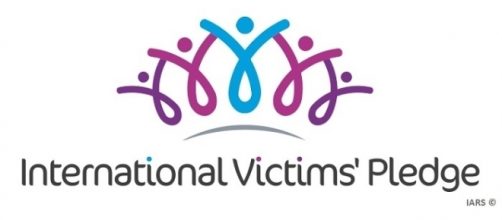We often make assumptions about what victims and offenders want from criminal justice. For the victim, we assume that they want vengeance, compensation and the offender's imprisonment. For the offender, we assume they want a lenient sentence or, if possible, to 'get off the hook'! Rarely do we think that these two individuals may actually want to meet outside of the cold and formalised structures of the courts and law offices. That they might want to apologise, understand each other, forgive - but not necessarily forget.
The opportunity to meet your offender and try to put things right (as much as possible) independently of what they did to you, is called restorative justice (RJ). This concept is nothing new as it has been with us since we first formed civilisations (Gavrielides, 2011).
I define Restorative Justice as "an ethos with practical goals, among which is to restore harm by including affected parties in a (direct or indirect) encounter and a process of understanding through voluntary and honest dialogue” (Gavrielides, 2007). But as one victim simply put it, restorative justice is a “Community-led response to helping victims to have their voice heard. To restore something is to attempt to put it right.” An offender defined it as, “building a new life, turning your life around.”
In fact, today and through the Crime and Courts Act 2013, courts in the UK have the power to defer the passing of any sentence and for any crime to RJ. The condition is that RJ is requested by both parties and that participation is voluntary.
But who knows about RJ?
On the back of this development, in June 2016, the London Mayor commissioned a £1.3m pan-London RJ service called Restore:London (R:L). It is delivered by a consortium led by Catch22 and in partnership with Restorative Solutions, Khulisa and the IARS International Institute.
IARS International Institute
I am the Founder and Director of the IARS International Institute and the principal investigator for a survey that we carried out with victims and offenders in London. The purpose was to find out what they wanted from the Mayor's new pan-London service. In September – December 2016, we undertook, including;
- 66 victims and 44 offenders (questionnaires)
- 11 in-depth interviews with victims and offenders
- A 2 hour focus group with The User Scrutiny Panel, which is an independent body consisting of eight victims and RJ practitioners. Its principal goal is to scrutinise the Mayor's new service.
What did we learn?
Not surprisingly, only 31% of victims and 50% of offenders have heard of RJ.
Despite having a law offering RJ, 85% of victims and 88% of offenders had never been offered it. Those who were indeed offered a restorative instead of a criminal justice option, 70% of victims and 66% of offenders opted for RJ. Of those who undertook an RJ practice, such as mediation, conferencing or circle, 66% of victims were either very satisfied or satisfied, and 60% would recommend it to others. 75% of offenders were very satisfied and 50% would recommend it to others.This made us ask whether there is a demand for RJ that we are not meeting in London. 68% of victims and 66% of offenders who had never been offered RJ would have liked to.
Returning to our assumptions about what victims and offenders want from justice.
We asked, and for 51% of victims the most important want is to have their say followed by giving them the opportunity to tell the offender the impact of their crime. For 44% of the offenders, the biggest want was to have the chance to explain their action to the victim and their community.
Reflections
Our Criminal Justice System is at breaking point. Over three quarters of offenders will re-offend again, while it costs over £60,000 to keep one adult offender in prison for a year, and over £180,000 to keep a juvenile in a youth offending institution. The neglect of victims and their exclusion from the justice process also continues to be a problem. Our research findings seem to suggest that whether being a victim or an offender the key reasons for opting for a restorative practice are the same.
These revolve around the personalised nature of the restorative offer as well as its diversity and malleability.
The "sausage machine" of our criminal justice system leaves both victims and offenders in a vicious circle of offending or trauma and pain. Interestingly, the more complex and serious the crime is, the most likely victims would opt for RJ. This is aligned with the reasons they would prefer it over courts and prosecution.
This made me think of the potential of RJ. I have argued elsewhere that RJ can be, and has been used, for complex cases such as hate crimes and domestic violence. But I have also warned that RJ must be provided according to its key principles and by having strict safeguards.
Otherwise the damage will be too severe for everyone. Given the rising levels of radicalisation and our experience of three attacks in the last three months alone, I am now wondering whether a community dialogue and collective responsibility taking for terrorism are better alternatives than exclusion and division.
Professor Theo Gavrielides, IARS Founder & Director
Further information and contacts
For victims and offenders wishing to access R:L service: https://www.restorelondon.org.uk/
For researchers, media and practitioners: http://www.iars.org.uk/


